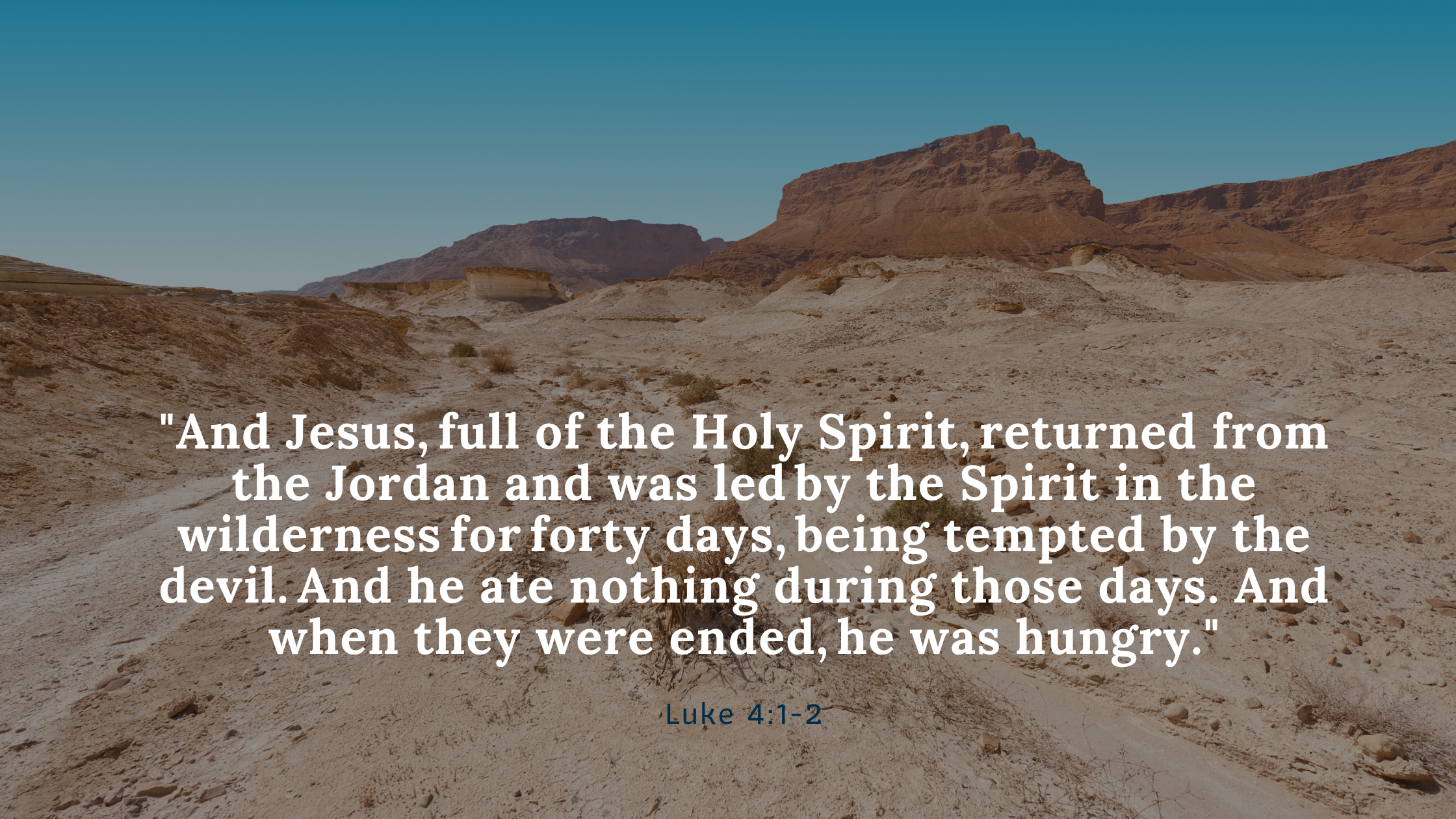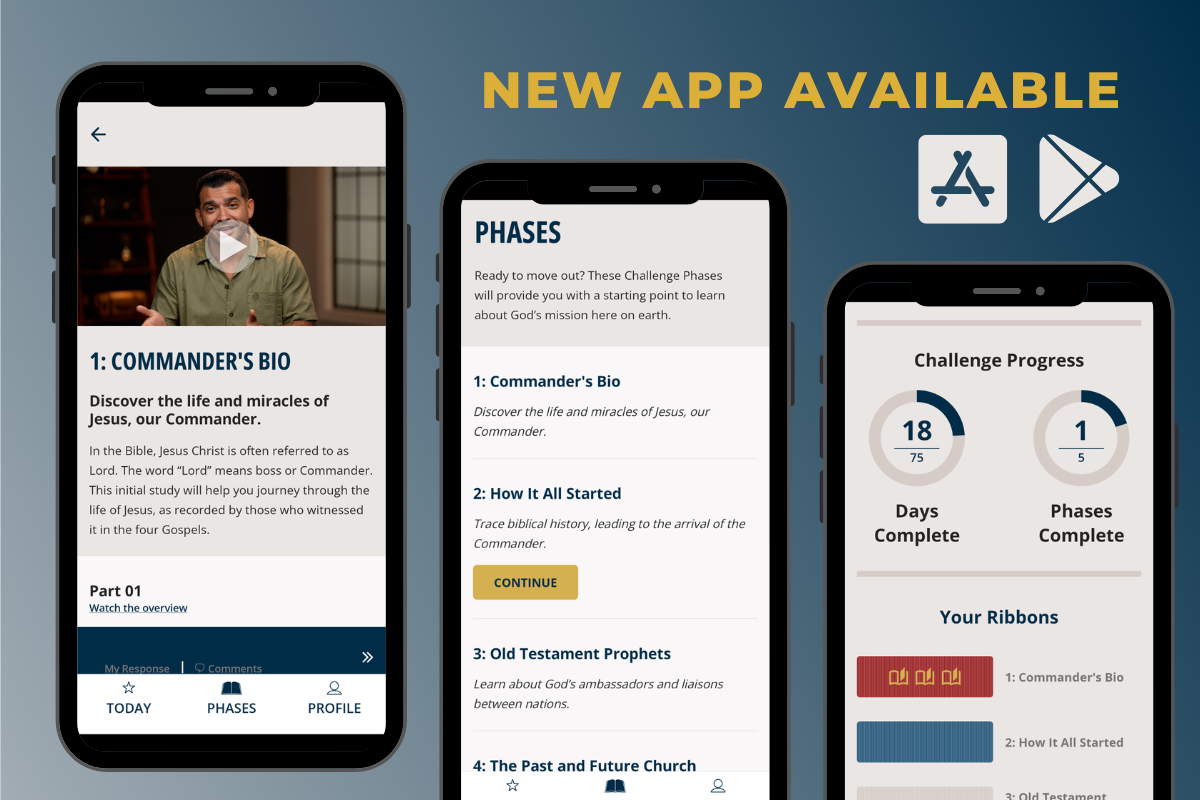I recently came across a 1941 quote by MG Edmund B. Gregory who was the Quartermaster General at the time. Apparently he was fond of saying, “For us to fail to prepare is to prepare to fail.” It struck me as interesting because it was similar to something from my career. I had a Commander who, prior to any training event, would conclude his remarks by saying, “Remember P6.” P6 was shorthand for his recurring mantra that he drove into each of us: Prior Preparation Prevents Pitifully Poor Performance. He wanted us to understand that the energy and commitment that we gave to preparations would always result in a more successful training event which directly enhanced our readiness to face any real world situation.
In like manner, P6 can also apply to Christians! Our near term spiritual preparations can have long term benefits. For example, there is a time designed to prepare Christians for their most important day: Easter. For too many people, Easter preparations mostly involve buying new clothes, candy, and baskets while decorating with eggs and bunnies. There is nothing necessarily or inherently wrong with this, but it has little to do with the resurrected Christ. The Church therefore offers a more spiritual preparation opportunity. This preparation time is often called Lent, a training period when believers demonstrate the depth of their commitment to Jesus Christ by making simple sacrifices.
Meaning of Lent
The word Lent comes from Old English, and means “Springtime” or more literally, “the lengthening of days.” The season of Lent was designated to be a special time of penance, prayer, giving to charity, and fasting. In this time Christians were asked to make changes in their lives in preparation for and to gain a greater appreciation of the glory of Easter.
Lent is the 40 days before Easter, sort of. Sundays are not included in those 40 days. Fasting and penance were meant to focus on our personal spiritual lives, while Sundays were meant to focus on Jesus Christ. Therefore, Sundays were exempt from the fasting. The length of Lent was inspired by the biblical accounts of Jesus spending 40 days fasting in the wilderness in preparation for his ministry.

The official starting day for Lent is often called Ash Wednesday. On that day, some churches apply ashes to the foreheads of their parishioners to indicate their commitment to the Lenten season.
On a side note, there was a time that Christians would purge their household of foods they planned to give up for Lent, such as meat (not eating meat was a common fast), dairy, or sweets. So the day before Ash Wednesday became a time to consume those foodstuffs in preparation for the fasting. It became known as “Fat Tuesday” or the more common French name, “Mardi Gras.” Some countries call it Shrove Tuesday (shrove means to absolve), and is celebrated by eating pancakes! Making pancakes allowed them to use up their supply of eggs, milk, and butter prior to Lent. Still others call it Carnival. While many of these Tuesday practices have become morally corrupt over time, their original intent was to bring local communities or neighborhoods together to share in a festive time just prior to the solemnity of Lent.
Understanding Lent
Many people think of Lent merely as time to just give something up or stop doing something, and they would be wrong. It is not just about depriving ourselves of something. It is about disciplining ourselves or preparing ourselves by giving something up to the Lord, as a gift.
“Lent invites us to prepare for the greater good, to the glory of the Lord.”
The idea of Lent is to give something up and replace it with something that honors and brings us closer to Jesus Christ. A close member of my family from her youth has chosen to give up two of her favorite things each year for Lent: chocolate and coffee. I asked her why, since our faith tradition does not normally fast in this time. She said that she hoped one day she would desire Jesus Christ as much as she craves chocolate and coffee during Lent.
Other Lenten ideas I have encountered over the years as a chaplain:
- Fasting at lunchtime and using that time for additional bible study and prayer.
- Sacrificing sleep and getting up a little earlier to spend more time with God.
- Spending less money on food/snacks and giving that difference to the poor.
- Replacing 30 minutes of TV or screen time with 30 extra minutes of prayer and bible study
- As a couple, family, or individual, incorporating a daily devotional prayer time that is focused on a Lenten theme.
Remember, a Lenten discipline need not be a solo mission. Often whole families, groups of friends, or even battle buddies agree to a common sacrifice for Lent. This allows them to encourage each other and hold each other accountable. Regardless of how we choose to observe it, Lent invites us to prepare for the greater good, to the glory of the Lord.
Biblical Foundations
The Bible has much to say about the importance of being spiritually prepared. King Solomon used an agricultural image to give us this warning: “The sluggard does not plow in the autumn; he will seek at harvest and have nothing (Prov. 20:4)”. He repeats this image when he says, “Whoever works his land will have plenty of bread, but he who follows worthless pursuits will have plenty of poverty (Prov 28:19).” Solomon is encouraging us to deliberately grow our faith while we can, so that we can reap the harvest of spiritual abundance when needed. He warns us that failure to prepare will result in pitifully poor performance.

Jesus himself often spoke of his followers needing to be prepared. In an image similar to Solomon’s, Jesus said, “We must work the works of him who sent me while it is day; night is coming, when no one can work (John 9:4).” Jesus would go on to warn us not to waste the time that we have to deepen our walk with him. He warns, “But watch yourselves lest your hearts be weighed down with dissipation and drunkenness and cares of this life, and that day come upon you suddenly like a trap (Luke 21:34).”
Jesus does not want us to fill our lives with worldly things that weigh us down and hurt us. Rather, he invites us to fill our lives with spiritual power so that we can successfully execute our mission when needed.
As we have seen, that requires preparation.
As we prepare ourselves through spiritual discipline, the Apostle Paul offers to us the same encouragement that he gave to his friend Timothy about being prepared: “Do your best to present yourself to God as one approved, a worker who has no need to be ashamed, rightly handling the word of truth (2 Tim 2:15).”
Remember P6
In the Military, we prepare so that we know how to act and respond in real world situations. We know that prior preparation prevents pitifully poor performance. Likewise, Lent can be a time of preparation meant to give Christians a greater appreciation of Easter, and to better prepare us to fulfill any future missions given to us by our Lord.
Regardless of our faith tradition, Lent is the perfect time to do a spiritual azimuth check, and determine if we are still on point in our readiness as the Lord’s servants. The Apostle Paul gives us this challenge:
“I appeal to you therefore, brothers and sisters, by the mercies of God, to present your bodies as a living sacrifice, holy and acceptable to God, which is your spiritual worship.” (Romans 12:1)
I therefore have to ask. How are you preparing for Easter? Along with Paul, I urge you to prepare for real-world wilderness scenarios now. Get ready for Resurrection Day.






